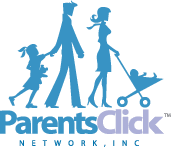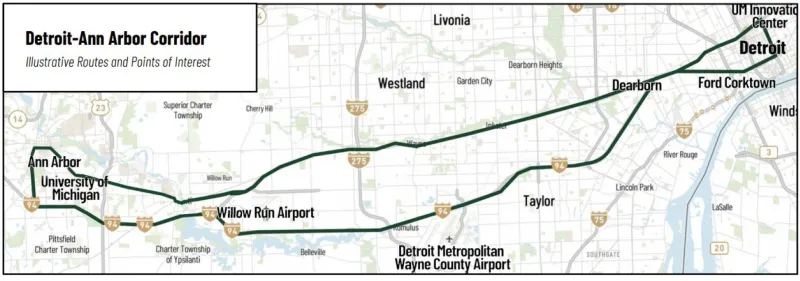MothersClick Acquired by Lifetime Networks
MothersClick.com and the rest of the ParentsClick Networkhave been acquired by Lifetime Entertainment.
I’ve been working on this site and with Dietrich (CEO & founder) for over 2 years now. Through the ups and the downs we stuck to it, determined to succeed, and I’m delighted that finally after these years, we will have all the resources behind us now to really build out the company and network of sites to how we both envision it. The coming years are going to be exciting!
Here's the article I wrote for Drupal.org that includes more details:
Lifetime Entertainment Acquires Drupal-powered ParentsClick Network
By m3avrck on 18 Sep 2008

MothersClick.com and the entire ParentsClick Network is very proud to announce that we've been acquired by Lifetime Entertainment. This marks a major milestone for a digital company whose online technology stack is largely built on Drupal.
The transaction is further proof that Drupal is competing with the likes of Ruby on Rails as a framework for high-tech startups. Lifetime's strategic acquisition of ParentsClick Network shows its belief that Drupal can power some of the largest online social community sites. Lifetime's VP of technology Nathan Potter states, "With the acquisition of ParentsClick, we continue to grow our core competency in Drupal development. With one of the largest and fastest growing Drupal-based communities anywhere, we will continue to show the world what Drupal is capable of."
About the Business
When MothersClick launched in late 2006, our primary goal was to provide a better group solution than Yahoo groups. Our target audience defined the required functionality: moms want to frequently ask questions and find answers, tapping into to their collective wisdom and sharing the wealth of parenting knowledge with each other. "Creating a safe and useful place for moms to connect, learn, and share online was the goal," says Dietrich von Behren, founder & CEO of ParentsClick Network.

Now take that same concept and apply it to dads, and soon we'll be introducing FathersClick. Finally, our plans include steps to scaleout our solution to a state-specific nationwide network and international sites for parents. With a portfolio of 200+ strategic parenting-related domains, these can now be used to roll out a network of sites, including SEO optimized landing pages like MothersGroups.com. As the technical pieces are wrapped up and marketing efforts are underway, we are on the eve of deploying these sites in the coming months.
How Drupal was Used
So why Drupal? Only two years ago, Drupal (circa v4.7 days) offered not only a group solution but had dozens of modules available to quickly build a full-fledged community. And as the ambition of any startup: we wanted to get our product to market as quickly as possible, and Drupal was great for just this.
But that ease of use comes at a cost: you can't download a module to do everything you want your site to do, and there isn't yet a WYSIWYG option to build a company upon a flourishing online community.
That's where expertise is required. Myself, Ted Serbinski (aka m3avrck), Chief Technology Officer and Scott Reynolds (aka, Scott Reynolds), Senior Developer & Engineer were the driving tech forces behind the site. I've been active with the Drupal project for nearly 4 years (and a former Lullabot too), and have contributed back nearly 1000 patches, from numerous core patches to contributed modules. Scott started as a Google Summer of Code student and has contributed back his fair share of patches too.
With an active Drupal community record, we both realized the inheritance weakness of the community: it was moving too slow and too generalized for us to keep pace with our own sites. Therefore, we decided to start scraping downloaded modules in favor of our own community API to sit on top of Drupal. We developed a custom groups module dubbed "community" that not only handled groups for us, but also tied into multisite allowing us to scale our communities up to entire sites. And all of this with one module that was benchmarked to be 240% faster than OG & Domain modules combined. With that said, our module wasn't nearly as flexible as those, but for our purposes, does exactly what we needed.
From there we created a unique interface by plugging other features to our community API, such as friends and multiple user profiles, with many more exciting features coming soon.
With our new community API we also needed a new system to send alerts, notifications, and emails. To accelerate our efforts, we collaborated with the good folks at Development Seed, who were also working on a brand new api: Notifications & Messaging. We worked closely with them on alpha builds sending feedback and patches as we became the largest site making use of these impressive modules.

Not only that, but we contributed backs tons of patches to Drupal core, views, OG (when we were using it), and other modules. We've released Simplefeed which is one of the main components powering Mom Blog Network. Additionally, we have released our high-performance and SEO optimized theme, Blueprint which sits at the base of all our sites. We have other modules in the works to be released later this fall/spring too.
What about performance? Can Drupal scale? Out of the box, it can do pretty well. But once tuned and optimized, it definitely can. We've benchmarked our framework (we do have a modified version of Drupal we're running, with almost all patches living in the Drupal queue and/or in D6 or D7 now) and servers to be able to handle 1 billion+ page views a month. Not too shabby.
Lessons Learned
In building out this startup, tons of lessons have been learned.
The single biggest one is determination. Without it, none of this would have been possible on both the tech side and business fronts. If you keep forging ahead, despite obstacles and uncertainties which could dissuade you, eventually success will find you.
From a Drupal perspective, don't take the easy way out. Sure, you may think this or that module on Drupal.org may do almost what you need it to. But then you may end up spending more time trying to fit that module to your own needs than starting from scratch. While I'm a huge believer in contributing back, you have to think logically: sometimes the quickest answer, download and use, isn't the best answer. Rewriting a module and trying to contribute back doesn't work and contributing back a duplicate module in most cases doesn't help--it further fragments the module situation. So get back to the basics and write some code. The results will amaze you (as did our community API). And in the process you might just discover where some core frameworks can further be improved, contributing back ideas and patches.
We look forward to continuing to build out the ParentsClick Network and contributing even more back to the community!
Ted Serbinski Newsletter
Join the newsletter to receive the latest updates in your inbox.


